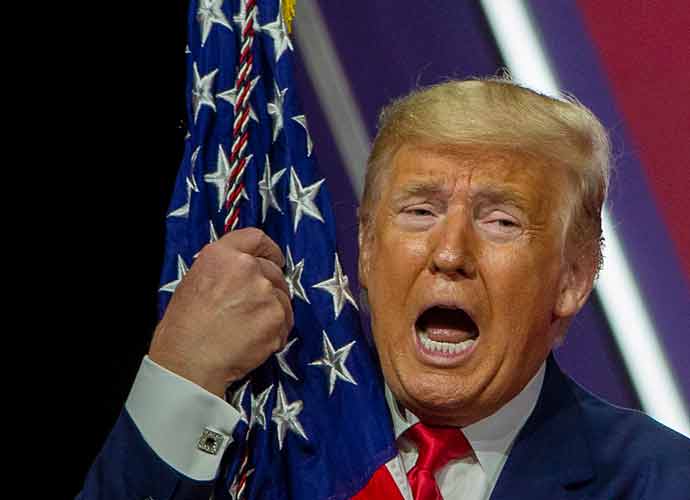Ban Lifted On Gun Silencer Sales After Pressure By White House Lawyer & Former Gun Lobbyist Michael Williams
The State Department has lifted a ban on selling firearm silencers to private foreign buyers on Friday, largely due to the work of White House lawyer Michael Williams, who previously spent two years working for a trade group that sought to expand sales of silencers by American manufacturers.
The New York Times, which first reported on Williams’ ties to special interest groups, said Williams used his role within the Trump administration to push to overturn the ban, which had been in place to protect U.S. troops abroad.
Lincoln Bloomfield Jr., who was assistant secretary of state for political-military affairs in 2002 when the ban was first created, told the Times the policy was to prevent terrorist and anti-American groups from using American weaponry against American service members.
“Terrorist groups were using garage door openers to blow up U.S. troops; you kind of think twice about what you are exporting,” Bloomfield said, adding that similar threats still exist today. “Who are you selling these silencers to? I sure hope that none of these are aimed at U.S. or allied forces.”
Subscribe to our free weekly newsletter!
A week of political news in your in-box.
We find the news you need to know, so you don't have to.
A State Department spokeswoman argued the change was to benefit American manufacturing companies.
“U.S. companies should have the same opportunity to compete in the international marketplace as other manufacturers around the world,” the spokeswoman said, noting that silencers have become more accessible in foreign markets compared to in 2002.
Silencers, or suppressors, reduce the noise made by gunfire and make it harder to identify where the shots are coming from — a crucial benefit for U.S. troops.
Williams worked as a law clerk for the National Rifle Association before graduating from George Washington University Law School in 2014. He then went on to fight for the expansion of American silencer sales as general counsel for the American Suppressor Association, which his brother had co-founded in 2011.
Williams’ brother, Knox Williams, said Michael also helped lobby lawmakers and draft legislation during this role. The two never registered as lobbyists at the federal level, because they did not spend more than 20% of their time lobbying.
“We made sure that we were not hitting those thresholds to require us individually to register,” Knox Williams said. The two registered as lobbyists at the state level, however, when they tried to New Hampshire influence silencer policies in 2015.
Williams left his brother’s group in 2016 to become director of Election Day operations for the Trump campaign in North Carolina. He worked as associate counsel for President Donald Trump‘s inaugural committee and later joined the Office of Management and Budget early 2017. Williams assumed a new role on Monday, as principal deputy general counsel at the Department of Housing and Urban Development.
Knox Williams said his brother did not break the White House ethics rule prohibiting officials from working their former employers within two years of leaving. By 2019, however, Williams was able to push gun rights issues without those constraints.
Multiple anonymous officials told the Times that Williams then began actively pushing a gun rights agenda.
Knox Williams called the lift on the silencer sale ban a “big victory” for the American Suppressor Association, but said his group did not use Williams’ position for leverage. “We work the issues that we work just the same as any other organization does.”
The sale of American silencers could bring in as much as $250 million in revenue annually from overseas purchases alone.
Get the most-revealing celebrity conversations with the uInterview podcast!








Leave a comment